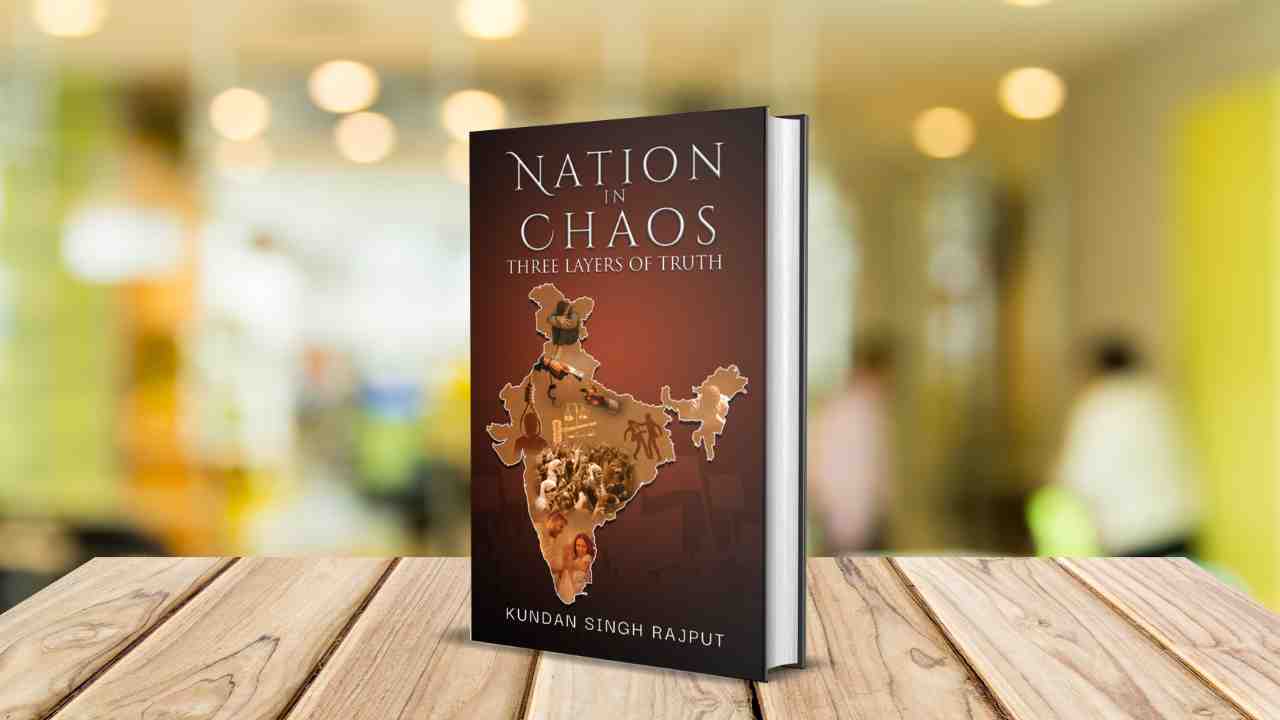Nation in Chaos – Three Layers of Truth is not just a book—it’s a revelation of conscience, an intense mirror held up to the moral, spiritual, and social fabric of modern India. Kundan Singh Rajput’s debut is a remarkable fusion of autobiography, philosophy, and reformist vision that dares to ask the questions society prefers to silence. With clarity and conviction, Rajput guides readers through the psychological and moral disorder that grips the nation, offering a path toward inner and collective awakening.
The narrative follows Arav, a young man disillusioned by societal hypocrisy, academic pressure, and corruption. Through Arav’s eyes, readers witness the conflicts of an entire generation torn between inherited beliefs and lived reality. Each chapter peels away a “layer of truth”—Societal, Scientific, and Universal—exposing how conditioning, blind competition, and moral decay have led to a collective mental crisis.
From the emotional account of student suicides in “Pressure Cooker Classroom” to the haunting depiction of the rat race for government jobs in “The Endless Queue,” the book strikes at the roots of a deeply flawed system. The chapters are enriched by real-world examples, historical reflections, and psychological insights that make it both intellectually rigorous and emotionally stirring. The author’s own life—marked by betrayals, failures, and rediscovery of faith—adds authenticity and raw vulnerability to his writing.
What distinguishes this book is its multidimensional approach. Rajput intertwines philosophy, psychology, and spiritual wisdom to propose a holistic understanding of progress. His use of texts like the Bhagavad Gita and Shiv Puran is not religious preaching but an exploration of consciousness. Through “Three Layers of Truth,” he shows how societal illusions and systemic corruption can only be overcome through individual enlightenment and collective moral reform. His vision of education as illumination, not employment is particularly powerful and timely.
Stylistically, Rajput writes in lucid, reflective prose that blends the narrative flow of a novel with the precision of a social thesis. His dialogues are crisp yet thought-provoking, often echoing the tone of self-inquiry. The inclusion of practical solutions—like education reform, political accountability, and emotional resilience—elevates the work from critique to constructive philosophy. Each chapter concludes with profound takeaways that feel like meditative insights.
The Author’s Note, titled “A Call for Political Accountability,” is one of the most compelling sections. Rajput argues that politicians should be legally bound to their manifestos—an idea that transforms idealism into actionable reform. It exemplifies the book’s mission: to inspire readers not merely to complain about chaos, but to take responsibility for clarity.
The book’s greatest strength lies in its balance between realism and hope. Despite describing corruption, apathy, and mental collapse, Nation in Chaos never succumbs to despair. Instead, it invites readers to rise above confusion, to reconnect with their inner compass, and to participate in the nation’s moral reconstruction. It insists that true revolution begins within—the shift from conditioned thought to conscious awareness.
While the narrative occasionally leans heavy on exposition, its sincerity compensates for any discursiveness. The author’s passion and firsthand experience shine through every page, making it an urgent and necessary read for students, educators, reformers, and anyone concerned about India’s future.
In essence, Nation in Chaos is a spiritual manifesto for a new Bharat—one that blends reason with compassion, science with spirituality, and intellect with integrity. It is a wake-up call to think deeper, question louder, and live truer. By exposing the cracks in our collective mindset, Kundan Singh Rajput paves the way for a nation that can rebuild itself from the inside out.




